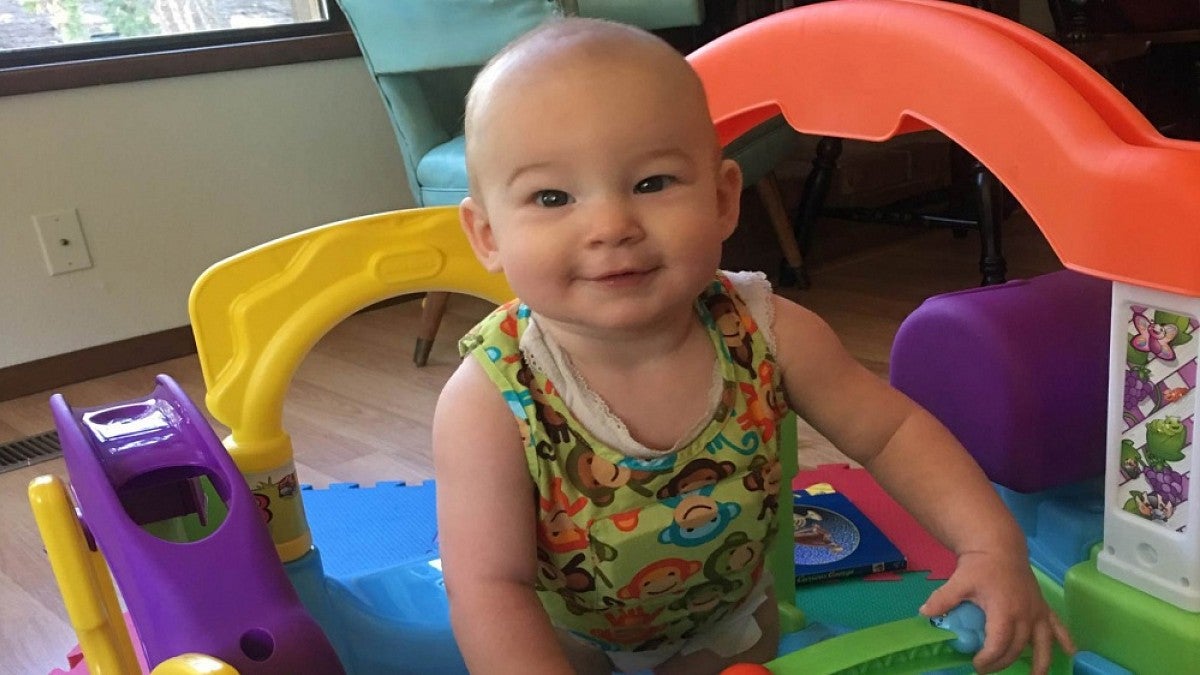Infants are surrounded by sounds that have the potential to help shape their social, linguistic and academic success, but very little is known about what sounds infants actually hear.
UO psychologist Caitlin Fausey and doctoral student Jenny Mendoza are trying to learn more about the auditory environment of infants to help advance developmental science. The pair recently received an award from the Grammy Foundation to conduct the research, which they hope will provide a platform to better understand how young children use sound to build knowledge.
“We know sounds are a rich source of information that infants are using to learn about the world around them, but we don’t know many details about what mix of language, songs and other sound patterns they actually hear,” Mendoza said. “We want to understand what sounds infants are hearing so we can begin to understand how they’re relevant.”
Many studies have examined the correlation between sounds and human development, but because there is very little information about the sound environment infants are exposed to, researchers are not equipped to design studies that align variables with real-life conditions.
“We can probe X and Y all we want in these studies, but what actually matters for X and Y when it comes to sound and infant development?” Fausey said. “Understanding what babies actually hear will provide knowledge that can drive the field forward in important ways.”
The goal of their research is to establish baseline knowledge about the everyday soundscape of infants, which should empower developmental scientists to conduct better targeted research in the future.
“We want to understand what experiences in the first part of your life can set young learners on a path to social, linguistic and academic success,” Mendoza explained. “But we need to know a lot more about the landscape before we can situate ourselves to answer those questions.”
One of the main reasons so much remains unknown about the auditory environment of infants is that the research is difficult to conduct. Attaching a high-quality recording device to a wiggling infant for hours at a time is as hard as it sounds. But thanks to recent technological advances, there are now baby-proof audio recorders researchers can slide into soft and comfortable vests for babies. Fausey and Mendoza are using the audio recorders and partnering with local families and babies through Team Duckling to tune into what infants hear on a daily basis.
The pair recruited 15 undergraduate research assistants to help categorize and analyze the data they are collecting through these audio recorders. Because the study incorporates innovative tactics for gathering and assessing data and the students are the primary listeners, Fausey and Mendoza are regularly soliciting their scholarly insights to help shape the direction of the project — a rare opportunity for undergraduate students.
“Our team of undergraduate students have been instrumental in determining the course of the study and the process for data collection,” Fausey said. “And they get to see what it takes to conduct a study on the cutting edge of science.”
Fausey directs the UO Learning Lab, which examines how infants and toddlers learn to recognize words and objects. The study on soundscapes will complement work she is doing with early visual environments for infants and toddlers.
“Kids are experiencing a holistic world, and I think we might miss stuff if we focus on one domain,” Fausey said.
She explains that there’s one factor in research about young — and older — learners that is consistently repeated: repetition.
“All theories of learning acknowledge that repetition matters,” Fausey said. “From sensory neuroscience up to human learning, understanding the details of repetition is critical for understanding how you get from input to your brain to learning something. But we know none of those details for early sound in the first year of life.”
“Knowing more about the everyday soundscape — and how it changes over the first few years of life — will help us understand how children build knowledge about the people, objects and actions of our world.”
A news release by the Grammy Foundation includes a rundown of all the new grants that were announced.
—By Emily Halnon, University Communications


